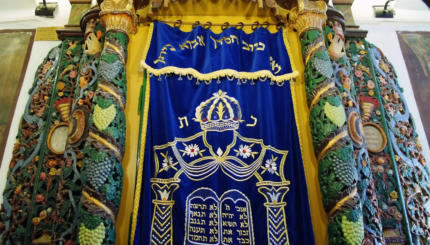Can sweeping the floor be sacred? Is it possible to view repairing the HVAC system as holy work? Synagogues have a lofty mission: To continue the Jewish journey of engagement with God and Torah into the next chapter of the story of generations. Synagogues are a place where the bereaved come to mourn their beloved. Synagogues are a place where babies are brought into the covenant of Sinai. Synagogues are the meeting ground where people come to experience a taste of the infinite, a touch of the Divine.
Yet, all too often, that meeting ground is in a state of disrepair. The cobwebs are to be found in every corner. The floors are scratched, the carpets are stained. The roof needs to be replaced. The boiler is 3 years past its replacement time. When we envision the sacred work of synagogues do we allow for the necessary work of maintaining the physical spaces that we are drawn to? Do synagogue boards allocate the proper attention to facilities maintenance? Does the budget reflect investing in the upkeep of the building along with the programmatic agenda? Are there enough maintenance staff and are they treated with dignity and paid a living wage?
These are vital questions that are regularly ignored for the far more compelling avenues of scholar in-residence programs, social activities and other engagement opportunities. However, the most basic truth remains: If the synagogue’s physical plant collapses due to neglect there will be no place to hold even the most dynamic of educational programs or the most engaging of scholar in-residence weekends.
Shlomo Carlebach z”l once challenged us to think in a different paradigm. He reminded us that even in the most sacred space in all of Judaism, the Holy of Holies, a place where no one but the High Priest was permitted to enter, this place was actually visited by someone else even before the High Priest: “The holy builders“. The people who created the space and who made sure it was functioning so that in all the glory and awesomeness of the moment the High Priest could entreat God on Yom Kippur for the forgiveness of the nation.
Synagogue executive directors and other professionals are crying out for the rabbis and lay leadership to once again invest in “the holy builders” and to set aside time and resources to addressing the aging infrastructure of so many of our synagogues around the country. Deferred maintenance is not the answer. Ignoring the problem is not the answer. Rather, a cultural shift is called for that sees the regular maintenance of our special sacred spaces as important and worthy of our investment.
Torah
Pronunced: TORE-uh, Origin: Hebrew, the Five Books of Moses.



